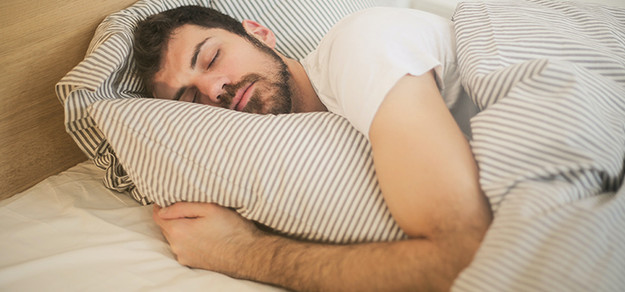Do Night Guards Cause Drooling?
24th Jan 2021

The most common solution for bruxism (teeth grinding) is a dental appliance called a night guard. Many people can tolerate wearing a mouth guard every night, but in a subset of people, the appliance can cause side effects such as drooling, dry mouth, and triggering of the gag reflex. So, if you’ve noticed you suddenly wake up in a pool of drool ever since you started wearing a night guard, you’re not alone. Find out why drooling with a night guard happens and what you can do about it.

What Causes Drooling?
Anything you put into your mouth that isn’t food will stimulate your salivary glands, which then causes you to drool. People also tend to drool while they’re sleeping. If you’re already prone to drooling and then you add a piece of plastic into your mouth, it’s logical that you might start to drool more; this is a side effect that is relatively common.
People who have never drooled at night before might be alarmed if they wake up with a wet spot on their pillow. Rest assured, this is normal and harmless. When you’re first getting used to using a night guard, this problem might be exacerbated.
According to the Cleveland Clinic, other common causes of drooling include diet, age, neurological disorders, and infections.
Is a mouthguard hard to get used to?
During the first few days or weeks, your night guard might feel very uncomfortable because you’re not used to wearing it. As you get used to your night guard, your drooling might decrease. It is incredibly important to continue to use your night guard if you are only experiencing mild side effects such as drooling or the slight discomfort of getting used to sleeping with something in your mouth. If you are struggling with major side effects like, teeth feel weird after wearing night guard, speak to your dentist regarding how to proceed.

What Can I Do About Drooling with a Night Guard?
One of the best lines of defense against drooling with a night guard is to get a custom mouth guard. This type of guard will fit more snugly and be less likely to move around in your mouth. Because it’s a custom fit, your body might not detect it as a foreign object to the extent it would with a bulkier, ill fitting guard. Additionally, you should wait at least two to three weeks to get used to having the appliance in your mouth. Many people find that they return to their baseline nighttime drooling after their body adjusts to their night guard.
Related Articles:
- Homeopathic Remedy For Teeth Grinding
- Why Does My Jaw Hurt On One Side?
- Does A Mouthguard Help With Sleep Apnea?
Sometimes, drooling may be improved if you get a different type of mouthguard. A thinner material will likely feel less obtrusive, and this is an ideal solution for people who clench or have light grinding.
Changing the location of your night guard could improve your drooling as well. Some night guards fit the upper teeth, some fit the bottom teeth, and some fit only over the front teeth or the back teeth. Talk to your dentist about your drooling issue and which type of night guard he or she thinks will best remedy the situation.
While you work to find a solution to your night guard drooling, remember that drooling is a minor side effect compared to the damaging effects of bruxism. Some drooling, especially as you’re getting to a new night guard, is perfectly normal. A night guard is a common appliance recommended in dentistry because it is incredibly effective at protecting against the damaging effects of teeth grinding, such as tooth pain, cracked teeth, pain in jaw muscles, and TMJ disorders.
Sources:

- Most Popular
- Hard Outside, Soft Inside
- 2MM Thick
- Moderate / Heavy

- Most Durable
- Hard Materials
- 1.5MM Thick
- Heavy / Severe

- For Day Time Use
- Thin, Barely Visible
- 1MM Thick
- Light / Moderate

- For Clenching
- Flexible & Soft
- 1.5MM Thick
- Light / Moderate

